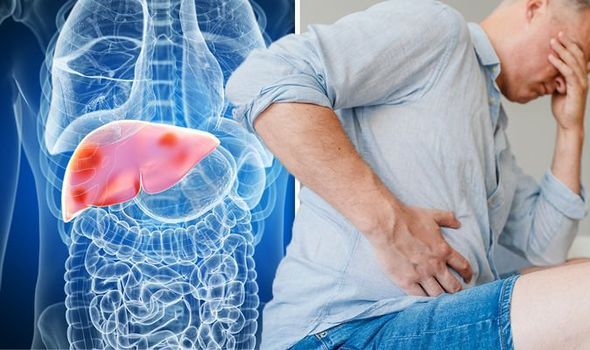Alcoholism is a condition in which a person has a physical and psychological dependence on alcohol. This compulsion and the heavy drinking that accompanies it can lead to cirrhosis of the liver, which is an irreversible damage to the liver that worsens over time and eventually leads to serious complications, including death.

Common symptoms of alcoholism and cirrhosis
- Decrease in physical health and appearance, or weight loss due to lack of nutrition.
- Poor concentration and mental function.
- Impaired motor skills.
- Elevated mood swings, such as anger or irritability.
- Feeling depressed, sad, or hopeless.
- Sleep disturbances and fatigue.
- Weight loss or an inability to gain weight.
- Nausea and vomiting, especially in the morning.
You might experience swollen legs or abdomen from fluid build-up (edema) in the abdomen (ascites) or lower extremities (peripheral edema) due to impaired production of albumin by the damaged Liver cells.
Jaundice (yellowing of the skin and eyes) is possible due to increased bilirubin in your body from a buildup of red blood cells that are breaking down too fast.
Itching might occur usually due to bile salts accumulating in the bloodstream.
You may experience changes in your mental status like confusion or forgetfulness, especially if you also experience encephalopathy. These signs and symptoms are most common during the last stages of cirrhosis.
Other complications may include bleeding varices. These are swollen veins in your esophagus, stomach and intestines that resemble thin ropes or worms when viewed through an endoscope. They can rupture and cause bleeding.
Decompensated cirrhosis occurs when complications become too disabling or dangerous for your liver to function properly on its own. If this happens, you may need a liver transplant or hospice treatment to live longer.
Treatment for Cirrhosis
Treatment typically focuses on slowing the progression of the disease and preventing complications. This may include drinking less alcohol, quitting smoking, and avoiding potential toxins such as pesticides or heavy metals to protect your remaining healthy liver cells.
If your cirrhosis causes complications and you require hospitalization, you'll be treated with intravenous fluids to prevent dehydration and medications to treat infections present in the ascitic fluid. For treating liver failure, your doctor may recommend a liver transplant if you meet the eligibility criteria.
Liver Transplant Solution
The liver is one of the most important organs in our body, and it plays a central role in the way we process and store nutrients. When the liver becomes damaged or diseased, it can no longer perform all these functions properly. When this happens, doctors may recommend a liver transplant as a last resort.
A liver transplant involves surgically removing the damaged organ and replacing it with a healthy one from either a living donor or someone who has recently died. This procedure is often reserved for those who are at risk of dying from their liver disease if they don't get treatment soon enough.
Although there are risks associated with any surgery, a liver transplant is generally a successful procedure and has helped many people to live long, healthy lives. Despite its risks, a liver transplant is often seen as the most effective treatment option for those with severe liver disease.
Common risk factors for developing alcoholism and cirrhosis
Men are generally more likely than women to develop alcohol dependence. According to the National Institute on Alcohol Abuse and Alcoholism (NIAAA), 6% of women in the United States have an alcohol use disorder compared with nearly 13% of men. Furthermore, female alcoholics are more likely to develop cirrhosis of the liver.
People with a history of alcoholism in their families are at increased risk for developing this condition. The NIAAA reports that almost 40% of the risk for alcohol dependence is attributed to genetics, and many environmental factors also have a role.
Alcohol is a drug that affects the central nervous system and causes people to experience intense cravings for more. The more someone drinks during each drinking episode, and the more frequently they drink, the greater their likelihood for developing alcoholism and related medical issues such as cirrhosis of the liver.
Treatment and Recovery
Treatment options for alcoholism can include counseling and support groups, medication therapy, nutritional therapy or lifestyle modifications. Treatment for cirrhosis of the liver focuses on slowing down the progression of this disease by eliminating any underlying factors that contribute to symptoms. Treatments may also involve addressing any alcohol use disorder to prevent further damage from occurring. In some cases where severe scarring has occurred, a liver transplant may be needed.
Although alcoholism and cirrhosis of the liver are serious medical conditions with potentially life-threatening complications, it's important to note that there is hope for recovery and healing. With treatment, people can reduce the severity of their symptoms and improve their overall quality of life. Living with alcoholism or cirrhosis is challenging but not impossible; seeking treatment early on will help you achieve your goals and live a healthy, fulfilling life.
Soberman's Estate is a residential men's addiction treatment center that provides discreet, individualized, sophisticated recovery and wellness services for adult men that want to recover from substance use disorders, and or other behavioral issues such as trauma, anxiety, depression, stress, or other addictions.




